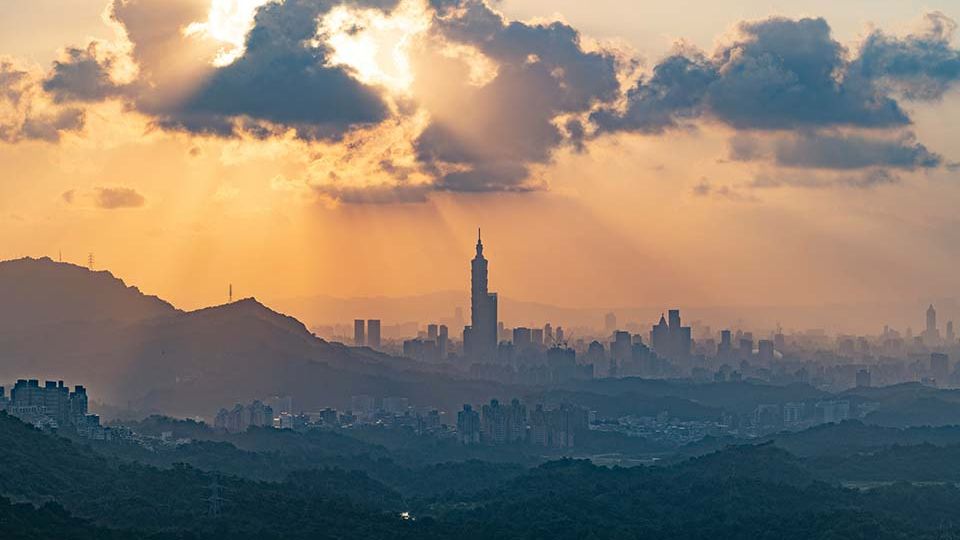August 13, 2024
TAIPEI – It is unmissable. Floating all over the homepage of China’s Taiwan Affairs Office (TAO) website is a box with the words “punish Taiwan independence diehards in accordance with the law”.
The words “Taiwan independence” are shackled in chains.
A click on the roving box takes viewers to a new webpage where 10 people deemed to be such “diehards” are listed. Among the names published on Aug 7, the day the page first appeared, are Taiwanese Vice-President Hsiao Bi-khim, Defence Minister Wellington Koo and former foreign minister and current National Security Council head Joseph Wu.
While none of the names comes as a surprise – Beijing has sanctioned them before on various occasions since 2021 – the list comes in the wake of China’s new legal guidelines issued on June 21, which defined Taiwan independence as a crime.
The set of rules threatens punishments up to the death penalty for those who promote Taiwan independence.
“Publishing this list now shows that China is serious about its warnings,” said Dr Wu Se-chih, a director and researcher at Taiwan Thinktank.
“The Chinese authorities are following up on their previous announcement, and they want to make an example out of these 10 people,” he said, adding that more names would likely be added to the list in the future.
Beijing, which claims sovereignty over self-ruled Taiwan, has in recent years stepped up its intimidation campaigns against the island to assert its claim.
According to China’s legal guidelines, acts liable for punishment include the promotion of the concept of “one China, one Taiwan” via “external official exchanges”, or the encouragement of Taiwan’s entry to international organisations where statehood is a condition. Suspects could be tried in absentia.
Nine out of the 10 names on the list are politicians hailing from the ruling Democratic Progressive Party (DPP), which champions Taiwan’s separate identity from China. The last person on the list, Ms Chen Jiau-hua, is former chairwoman of the smaller New Power Party, whose policies align closely with those of the ruling party.
There is a seemingly glaring omission: Taiwanese President Lai Ching-te, whom China has repeatedly labelled a “troublemaker” and a “dangerous separatist”.
Beijing has a particular distrust of Mr Lai for some of his past comments, including describing himself as a “pragmatic worker for Taiwanese independence”.
But while experts say that the deliberate exclusion is by no means a conciliatory gesture, it does leave Beijing with some room to manoeuvre.
“Sanctioning the President would almost be like a declaration of war. I don’t think China would be that reckless to shut down all possibilities (of exchanges),” said Assistant Professor James Yifan Chen, a political scientist at Taiwan’s Tamkang University.
“Cross-strait relations are not at that level,” he said.
Prof Chen added that the list is part of China’s move to dial up the pressure on Taiwan through legal means, even if it is largely symbolic. Beijing has no jurisdiction over Taiwan, which has its own government and judicial system.
“China is trying to make it look like it is basically administering Taiwan,” Prof Chen said.
“However, as long as these sanctioned Taiwanese officials or politicians do not travel to or transit in China, Hong Kong or Macau, it would, in reality, be difficult for China to seize or capture them,” he said.
When asked about the list at a regular briefing on Aug 8, Taiwan’s Mainland Affairs Council (MAC) said that it hinders exchange and communication between people on both sides of the Taiwan Strait.
“It has created more obstacles and harm in cross-strait interactions,” said MAC deputy minister Liang Wen-chieh.
Since June, the ministerial-level council has also raised its travel alert for China, Hong Kong and Macau to the second-highest level, advising the Taiwanese public to avoid unnecessary travel to these regions due to increasing safety concerns.
For its part, China’s TAO has reiterated that its punitive measures are directed only at “a small number of stubborn individuals” and do not apply to most of the Taiwanese public.
Besides the list of names, the bottom part of TAO’s new webpage features an e-mail address for the public to report any “Taiwan independence diehards committing serious crimes”, alongside evidence of their actions.
Mr Liang of the MAC said this could lead to individuals taking advantage of the system and reporting others not for their promotion of Taiwan independence but, rather, because of personal grudges or disagreements.
“If such a wave of reporting takes hold, it could lead to many people getting inexplicably involved,” he said.
“China has repeatedly said that only a small number of people are being targeted, but that would not be the case if this becomes a trend.”


